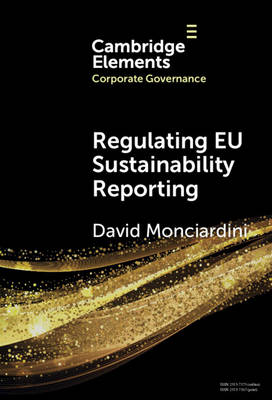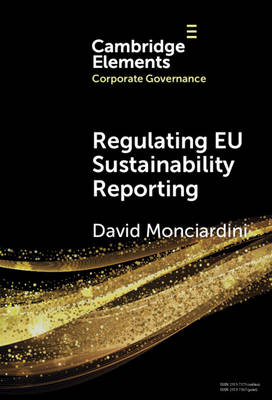
- Afhalen na 1 uur in een winkel met voorraad
- Gratis thuislevering in België vanaf € 30
- Ruim aanbod met 7 miljoen producten
- Afhalen na 1 uur in een winkel met voorraad
- Gratis thuislevering in België vanaf € 30
- Ruim aanbod met 7 miljoen producten
Zoeken
€ 112,95
+ 225 punten
Uitvoering
Omschrijving
Deterioration of socio-ecological systems requires deep changes in business regulation, including accounting rules. However, policymakers and stakeholders have recursively failed to deliver on mandatory sustainability reporting. Over the last decade, things have rapidly changed. Particularly in the EU, we are witnessing the standardisation and harmonisation of sustainability reporting. This Element questions what explains changes in sustainability reporting regulation and what one can learn from the past. It suggests that there is a structural fallacy in the design of the regulation of accounting for sustainability, which needs to be addressed to avoid another failure. The Element concludes by setting out a bold blueprint for rethinking reporting regulation based on a series of paradigmatic changes.
Specificaties
Betrokkenen
- Auteur(s):
- Uitgeverij:
Inhoud
- Aantal bladzijden:
- 92
- Taal:
- Engels
- Reeks:
Eigenschappen
- Productcode (EAN):
- 9781009737128
- Verschijningsdatum:
- 13/11/2025
- Uitvoering:
- Hardcover
- Formaat:
- Genaaid
- Afmetingen:
- 152 mm x 229 mm
- Gewicht:
- 294 g

Alleen bij Standaard Boekhandel
+ 225 punten op je klantenkaart van Standaard Boekhandel
Beoordelingen
We publiceren alleen reviews die voldoen aan de voorwaarden voor reviews. Bekijk onze voorwaarden voor reviews.








